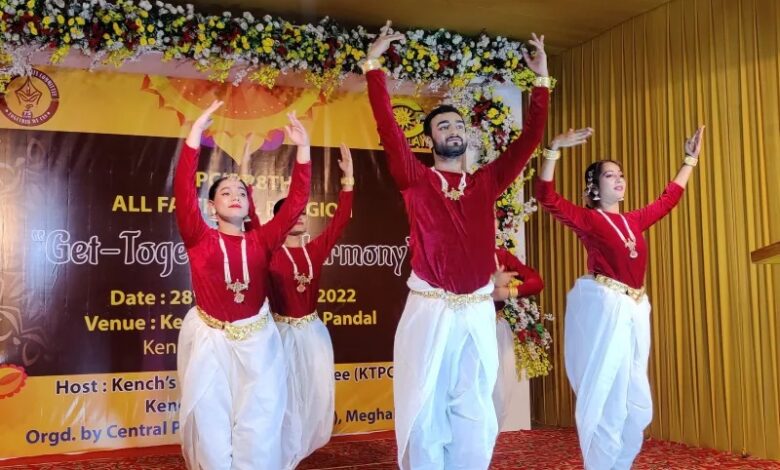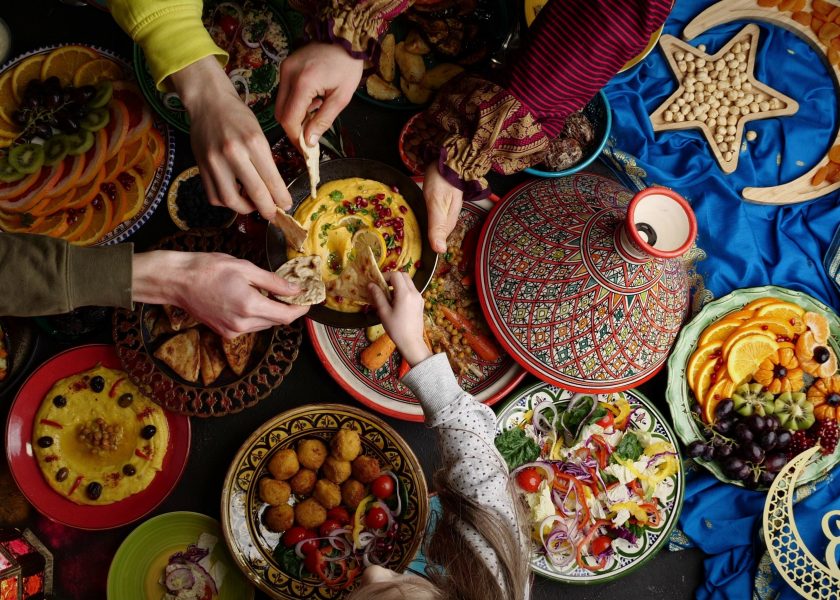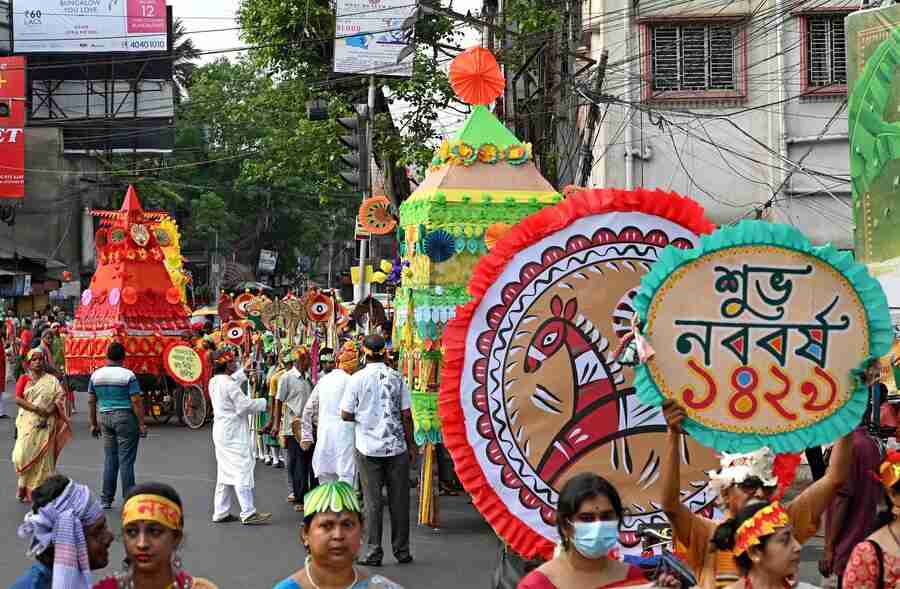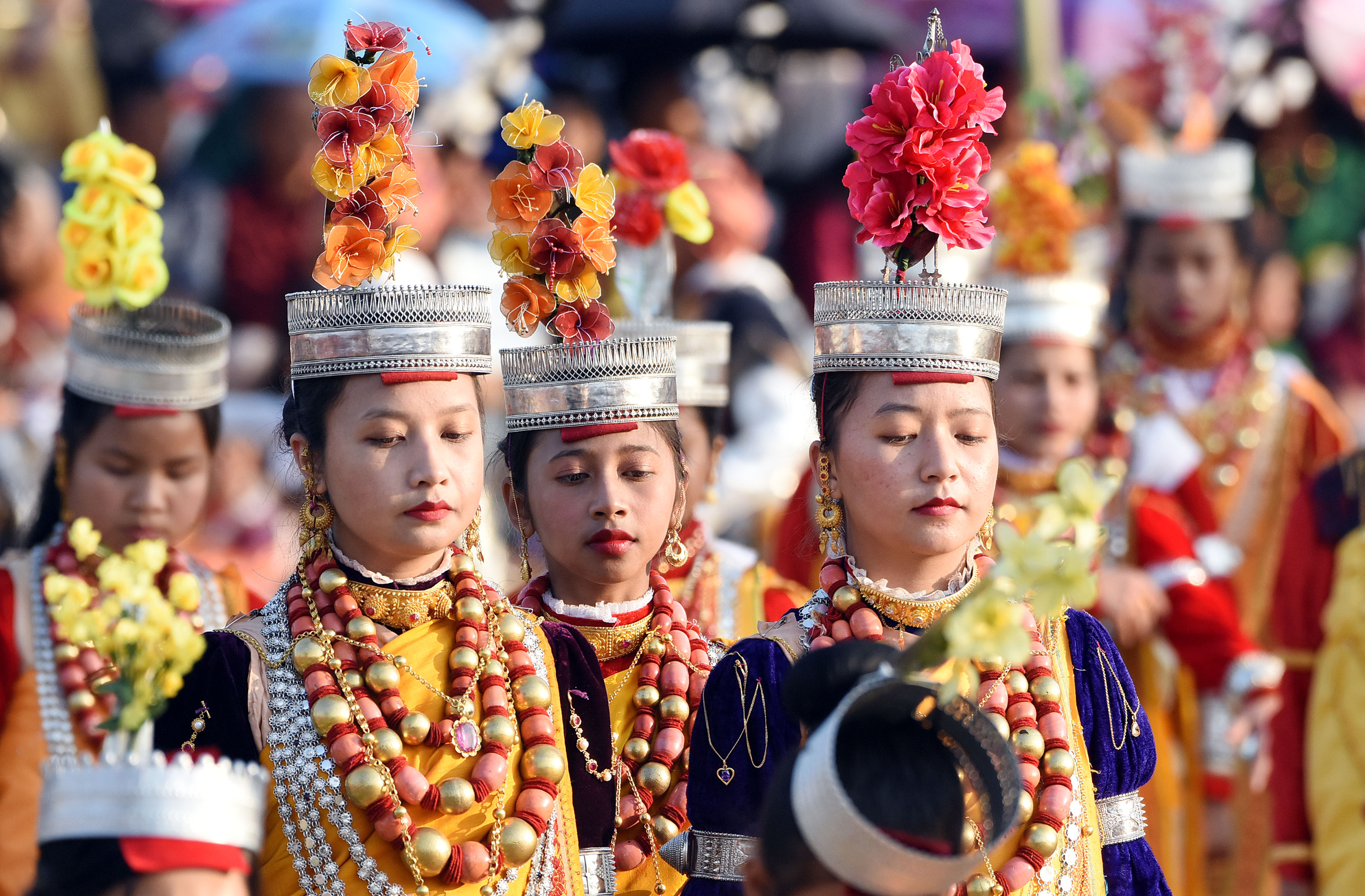Festivals Bring Concord and Harmony in the Multilingual Society
Shillong is a city of multilingual and multi religious people with multicoloured festivities. Innocent joy is the main objective of each and every festival; which invites integrity in diversity.

By Uma Purkayastha : Shillong
Life would be colourless and lack flavour if there were no festivals. Since times immemorial, festivals have been observed by numerous communities in varied ways; but the essence of each festival is the celebration of togetherness, making merry and gaiety. Especially, in a multifarious city like Shillong, which is a melting pot for diverse religions, castes, communities and tribes, through festivals, one can make themselves familiar with the rituals and customs of other communities which binds them with the feeling of oneness. Hence, festivals are the source of union, concord and harmony among different communities of people through music, dance, hospitality and reciprocal greetings.
A multicultural society ushers in festivals that honour traditions as well as serve as opportunities to celebrate communal harmony and fatarnity among people living in multilingual society.
It is observed that the importance and impact of festivals exuding cosmopolitanism is a teacher of healthy values for children, in their formative years. They learn and adapt to other cultures very sharply, and as a result a Khasi girl can emulate the ‘Bihu’ dance or a Bengali song and vice versa. It is also a part of reciprocal education where social performances play a crucial role.
April-May are the months of festivals of many sections of people in the multicultural society of Shillong. It is the month of Easter, Shad-suk Mynsiem, Rongali Bihu, Bohagu, (Bodos), Vaisakhi (Punjab), Puthandu (Tamil Nadu), Vishu (Kerala) Navo Barsho (Bengali New Year), Eid, ‘Rabindra Jayanti’, ‘Buddha Purnima’ etc.
It is observed that when a festival of any community is celebrated, the glee and merriment that comes along with it, is contagious, irrespective of one’s social background.

During Easters, non-Christians also honour and respect the great son of God, and his resurrection as the saviour of mortals.

The ongoing month, (Ramjan) is the month of sacrifice for the Muslims. They observe a stringent fast throughout the month, and generously help the distressed with offerings of fruits, food and clothing etc. Eid comes with a message of peace and happiness rejuvenating harmony in the society.

‘Rongali Bihu’ and ‘Navo Barsho’ also celebrated in the middle of the month of April, is also a harbinger of new beginnings and hope to people irrespective of caste, creed or religion. It is the year ending of the Bengali and Assamese calendar year and traditionally the harvest season marking Baisakhi in other parts of India. It is often celebrated semi-religiously followed by puja, prayers etc for the welfare of the whole universe.

Bengali ‘Navo Barsho’ is observed with prayer, Kirton, reciprocal greetings and entertainment followed by cultural gatherings for the fraternity.
‘Rongali Bihu’ means a very colourful and joyous Bihu; a festival of spring, a festival of youth, a festival of unity and integrity. It is one of the most important festivals of the Assamese through which their customs, culture, arts, crafts, and their heritage is represented in a festive way. Showcasing the ‘Bihu’ dance is one of the hallmarks of ‘Rongali Bihu’.

‘Shad Suk Mynsiem’ performed by the Khasi people, is a form of thanksgiving that is displayed through the dance forms, celebrated every year at the end of the harvesting season in the month of April. During its celebrations, seeds are sown for the next season’s harvest symbolising the onset of the new. This dance festival is celebrated on a large scale in open fields and enjoyed by all sections of people.
So, the festivals may therefore be taken not only as social enjoyment or religious gatherings, but a great festivals of universal concord and harmony, the importance of which in national life can hardly be ignored. Enjoyment or innocent joy has no colour. It does not need any language to understand or feel, but tune of joy is self explanatory! People floats in joy and enjoyment forgeting own language when join in any of the multilingual programme of merriments. So, festivals bring integrity through innocent joy and merriments, which is the crying need of the day.
All festivals should be equally honoured with reciprocal co-operation and integrity which would make the nation stronger and happier as a whole.






